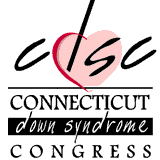- Education Topics
- Achievement Gap
- Alternative Education
- American Education Awards
- Assessment & Evaluation
- Education during COVID-19
- Education Economics
- Education Environment
- Education in the United States during COVID-19
- Education Issues
- Education Policy
- Education Psychology
- Education Scandals and Controversies
- Education Reform
- Education Theory
- Education Worldwide
- Educational Leadership
- Educational Philosophy
- Educational Research
- Educational Technology
- Federal Education Legislation
- Higher Education Worldwide
- Homeless Education
- Homeschooling in the United States
- Migrant Education
- Neglected/Deliquent Students
- Pedagogy
- Sociology of Education
- Special Needs
- National Directories
- After School Programs
- Alternative Schools
- The Arts
- At-Risk Students
- Camps
- Camp Services
- Colleges & Universities
- Counties
- Driving Schools
- Educational Businesses
- Financial Aid
- Higher Education
- International Programs
- Jewish Community Centers
- K-12 Schools
- Language Studies
- Libraries
- Organizations
- Preschools
- Professional Development
- Prom Services
- School Assemblies
- School Districts
- School Field Trips
- School Health
- School Supplies
- School Travel
- School Vendors
- Schools Worldwide
- Special Education
- Special Needs
- Study Abroad
- Teaching Abroad
- Volunteer Programs
- Youth Sports
- For Schools
- Academic Standards
- Assembly Programs
- Blue Ribbon Schools Program
- Educational Accreditation
- Educational Television Channels
- Education in the United States
- History of Education in the United States
- Reading Education in the U.S.
- School Grades
- School Meal Programs
- School Types
- School Uniforms
- Special Education in the United States
- Systems of Formal Education
- U.S. Education Legislation
- For Teachers
- Academic Dishonesty
- Childcare State Licensing Requirements
- Classroom Management
- Education Subjects
- Educational Practices
- Interdisciplinary Teaching
- Job and Interview Tips
- Lesson Plans | Grades
- Professional Development
- State Curriculum Standards
- Substitute Teaching
- Teacher Salary
- Teacher Training Programs
- Teaching Methods
- Training and Certification
- For Students
- Academic Competitions
- Admissions Testing
- At-Risk Students
- Career Planning
- College Admissions
- Drivers License
- Educational Programs
- Educational Television
- High School Dropouts
- Higher Education
- School Health
- Senior Proms
- Sex Education
- Standardized Testing
- Student Financial Aid
- Student Television Stations
- Summer Learning Loss
Connecticut Down Syndrome Congress

Basic Information
Address: PO Box 4487
Wallingford, CT 06492
Phone Number: 888.486.8537
Email: manager@ctdownsyndrome.org
Action Shots
* There are currently no photos associated with this listing.
Additional Information
Mission Statement:
To advocate for the realization and enhancement of the full spectrum of human and civil rights for persons with Down syndrome
•To address social policy issues and conditions that affect the growth and the potential of persons with Down syndrome
•To gather and disseminate accurate information regarding Down syndrome
•To promote public awareness and a better understanding of Down syndrome
•To encourage partnerships between parents and medical and educational professionals concerned with Down syndrome
•To provide support to families of children with Down syndrome
•To encourage quality services for persons with Down syndrome
Area Served: all of Connecticut
Events:
Numerous local and state-wide activities: annual picnic, local playgroups, Mom's night outs, holiday parties, etc.
Conferences/Speakers: •Annual convention, featuring nationally known speakers, workshops on best practices in education, medicine and social issues, and the largest state-wide gathering of families and professionals concerned with Down syndrome.
In addition to the annual convention, we co-sponsor parent/professional conferences with nationally known speakers, on such topics as Speech and language, medical issues, inclusive education and sexuality.
History:
The Connecticut Down Syndrome Congress was formed in May 1986 as a special interest group to advocate for persons with Down syndrome in the state of Connecticut. Today we are a welcoming and supportive network of over 350 parents, numerous professionals and over 20 advocacy groups statewide.

